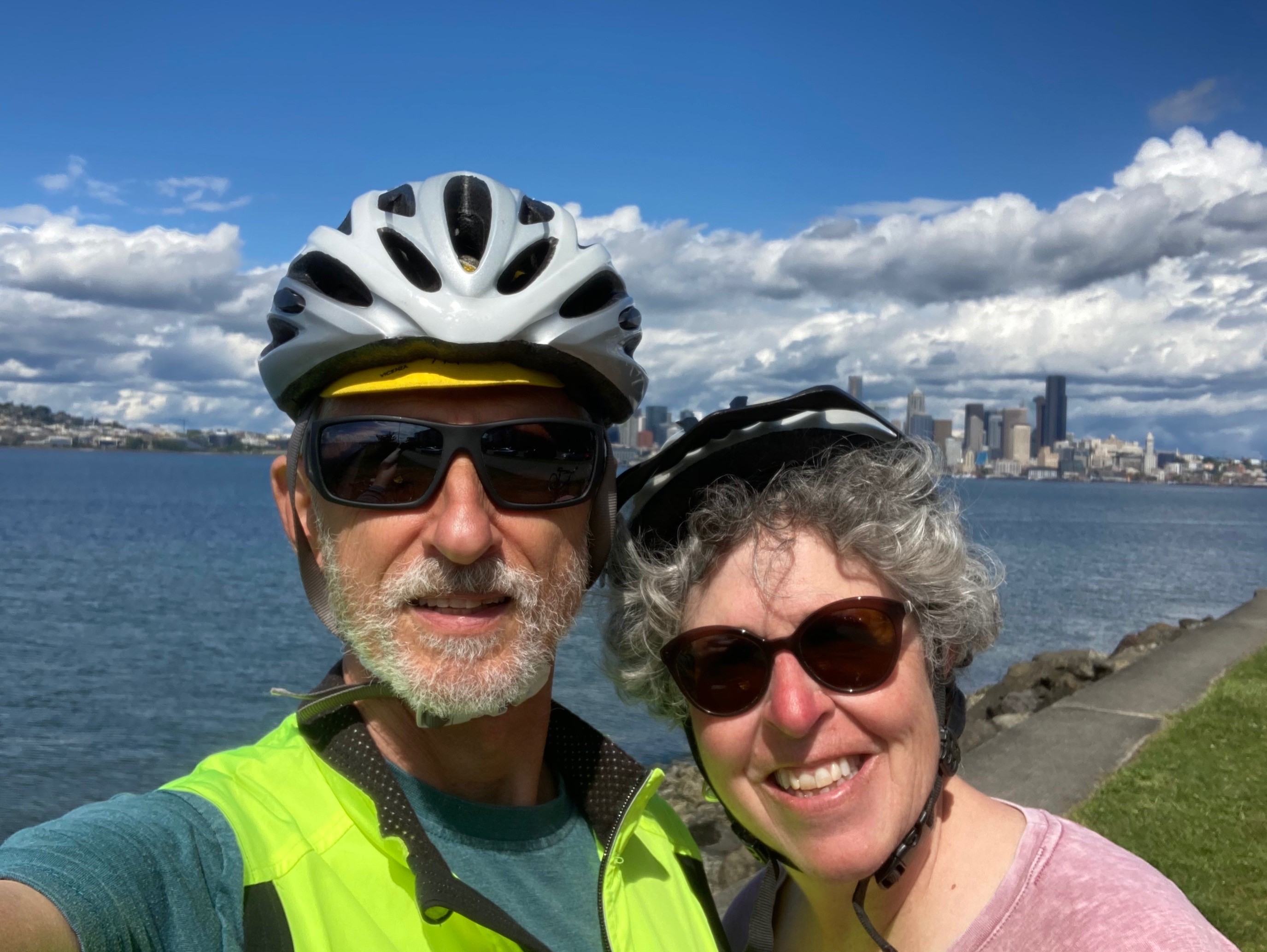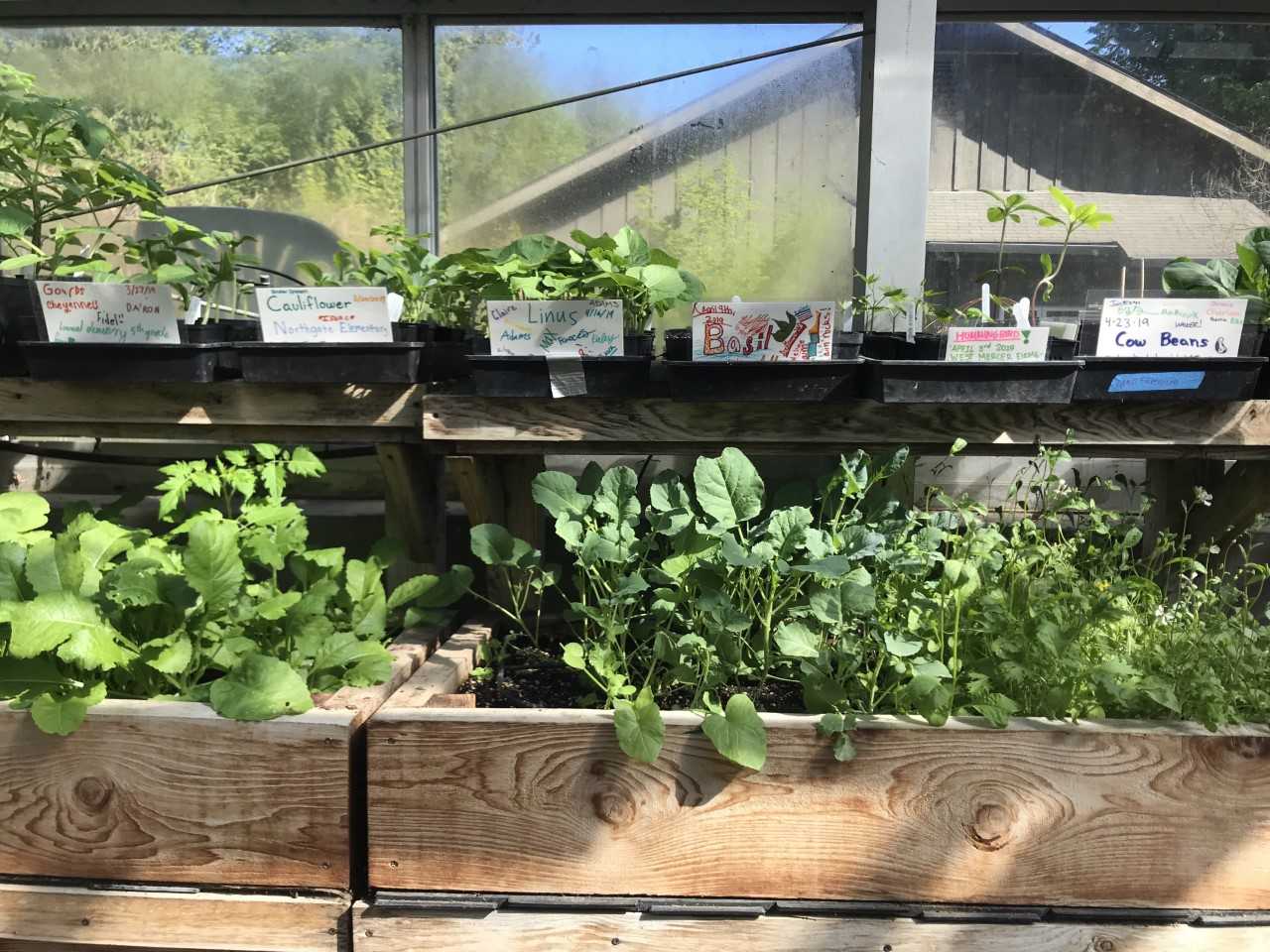IslandWood Graduate Program Director Dr. Déana Scipio and Urban School Programs Educator Laura Brown recently…
Author: Tamar Kupiec
Alison Martin’s father built a cabin in the foothills of the Sierra Nevada Mountains in a small town called Nevada City, CA. He added on to it when he married and then again when his only child was born. Alison recalls exploring on her own the woods of pine and cedar and the small creek passing near her house. She boasts of the nearby Yuba River, its clear blue waters a shocking contrast to the white granite rocks of the canyon.
Not surprising to those of us unfamiliar with this dot on the map, she calls her hometown “cozy.” But Alison puts a stop to any small-town idyll we might have. Nevada City, she explains, hosts a vibrant and edgy cultural scene, and though it lacks racial diversity, its residents are well-traveled and open-minded. And so Alison grew up with a pressing awareness of “the big world out there.” She left home to attend the University of Nevada in Reno, a larger dot on the map, for sure, but one that also defies stereotype. Alongside casinos and the grim signs of poverty is a thriving community of progressive politics and environmental activism. She stayed for seven years.
These complex hometowns instilled in her a love of a rural, outdoor life and a desire to see the world. She studied abroad in Santiago, Chile, and after graduation taught for a year in South Korea and traveled in Asia for five months.
Alison began school as an environmental studies major but switched to early childhood education after a summer job as a teaching assistant at a preschool. Teaching would join environmental justice as her guiding passions. Her professors impressed upon her the pedagogy and philosophy of Reggio Emilia, which values experiential learning and emphasizes process over outcomes. It dictates that projects for even these youngest of learners be holistic, lengthy investigations that follow students’ interests and allow them to express their intelligence in multiple ways, through art, say, or engineering. These principles informed her work as an outdoor and science camp educator with AmeriCorps and her years as a teacher both overseas and in a rural public school outside Nevada City.
She now finds herself in another unique home—on an island in the Puget Sound, having sought and found “a community that values what I value.” Alison wants to teach in the public schools and chose the IslandWood Graduate Program because of its emphasis on training teachers for the classroom and its foundation in environmental stewardship. However, she recognizes the limitations of the classroom walls and of even the most skilled and beloved teacher. “If you want kids to calm down or get energized,” she says, “you want to take them outside. Nature knows what to do.”
As a member of the Karuk tribe of Northern California, Alison will make a personal imprint on IslandWood methodology. “Natives were the first stewards of the land. I want that knowledge and that connection to the land revived.” Here at IslandWood, she is motivated to deepen her scientific knowledge and practice, but she will also teach her students the Suquamish names for the plants and animals they discover. In doing so, she hopes to teach an ecology that is not only scientifically sound but also, in keeping with native traditions, spiritually inclusive.









